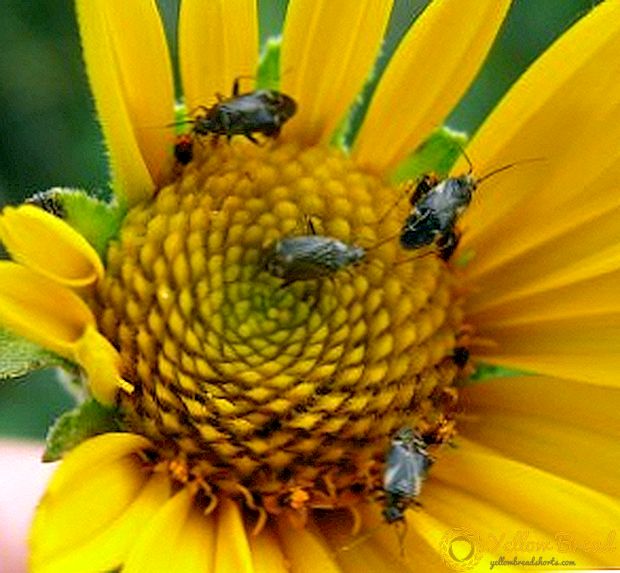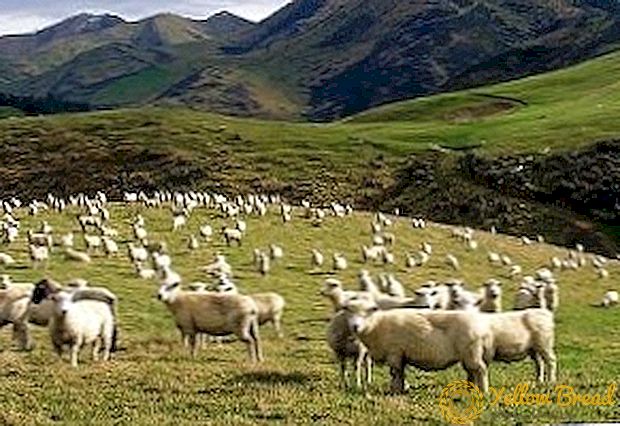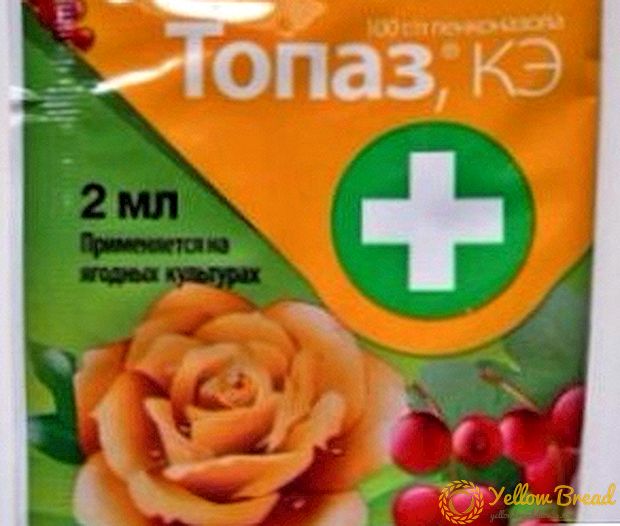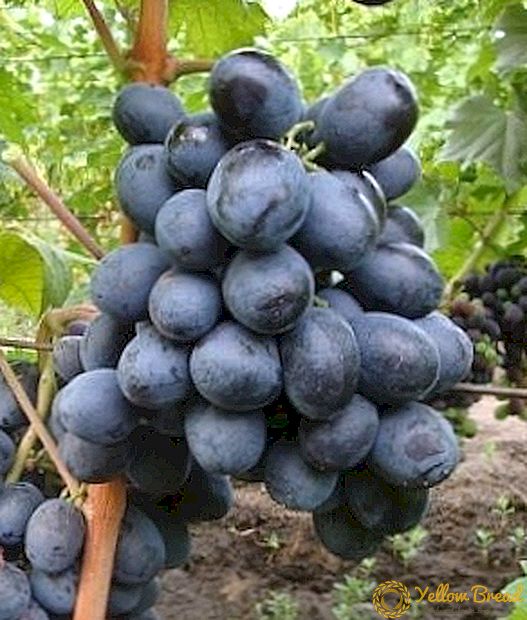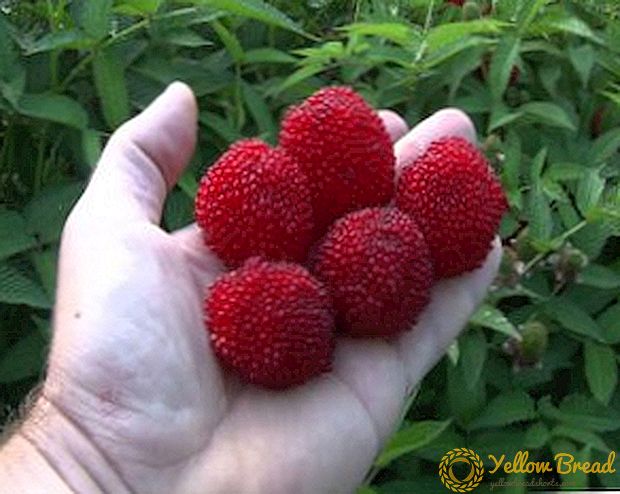 Dutch roses - the most common form, which differs unsurpassed beauty, a variety of colors. In our article we will describe the popular varieties of this flower, we will tell about the rules of its cultivation and the features of care.
Dutch roses - the most common form, which differs unsurpassed beauty, a variety of colors. In our article we will describe the popular varieties of this flower, we will tell about the rules of its cultivation and the features of care.
- Characteristic colors
- Popular varieties for growing
- Growing conditions
- Site selection
- Soil requirements
- Planting and reproduction
- Peculiarities of care
Characteristic colors
Varieties of Dutch roses are not only beautiful, they can be safely called exquisite and unique. However, it is worth considering the capriciousness and capriciousness of this type of flowers. It is for this reason that only florists with extensive experience are often engaged in breeding Dutch roses.
These flowers are amazing variety of colors, you can find maroon, black shades, also popular and roses of light tones. Thanks to a wide palette, everyone can choose a flower based on their preferences.
Popular varieties for growing
There is a huge number of beautiful and interesting varieties. We list them and give a brief description.
- The Grand Prix. Flowers have a classic shape, their diameter is 10-12 cm, mostly burgundy color. In one bud there are about 35-40 petals, the height of the stem is about 0.7-1.2 m. After cutting, it can please the eye within two weeks.
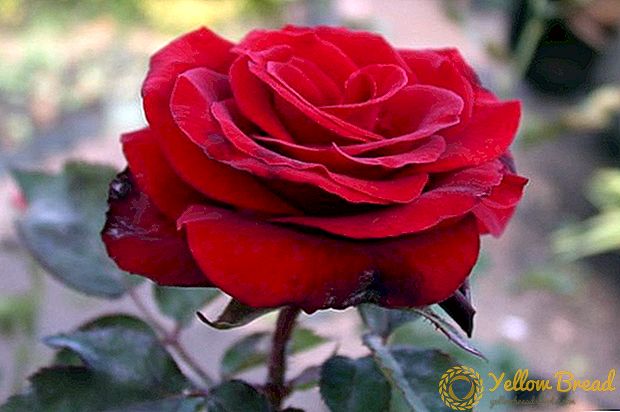
- Avalansh. Roses are white; the base of the buds is pale green. In one bud can be up to 45-50 petals. The height of the stem - 0.6-0.9 m.
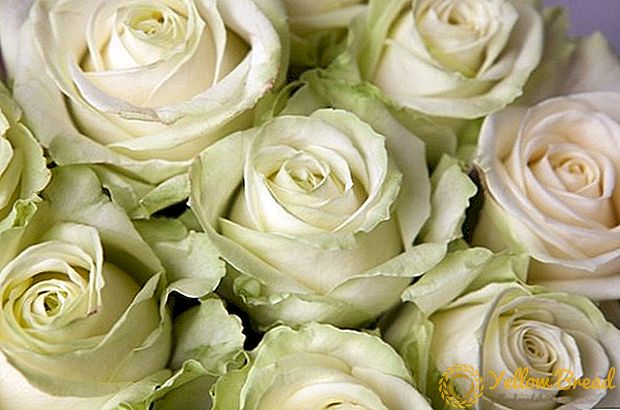
- El toro. Roses are bright red in color, the diameter of the buds is about 11 cm, they have a double edging. In one inflorescence 35-40 petals. The height of the stem - 0.6-0.8 m. This variety is resistant to temperature extremes.
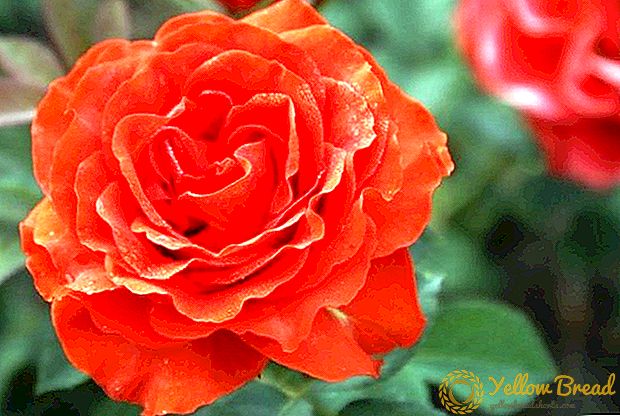 You will probably be interested to read about the varieties and the cultivation of Canadian and English roses.
You will probably be interested to read about the varieties and the cultivation of Canadian and English roses. - Ilios. Flowers with a lemon-yellow color, diameter of a bud - 11 cm, it is decorated with a terry border. In one bud has 30-35 petals. The height of the stem is 50-80 cm. The variety is resistant to temperature extremes.
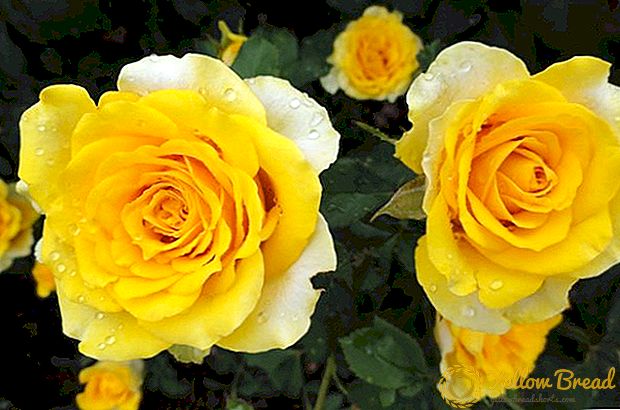
- Miss pigie. Flowers salmon color, the diameter of the buds is 12 cm. It has a light shade in the center of the inflorescence.In the bud, there are 35-40 petals. The height of the stem 60-90 cm. The variety has beautiful decorative leaves and delicate aroma.
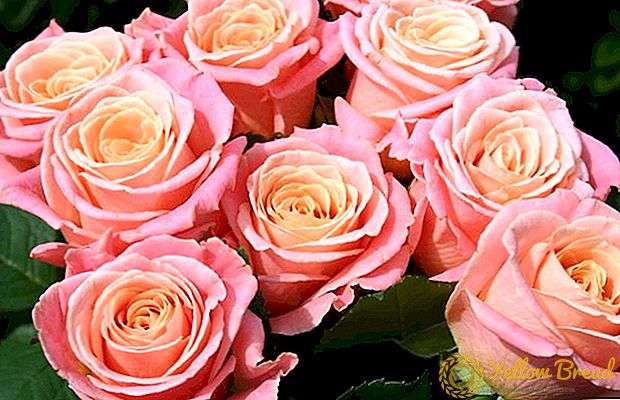
- Karina. The variety is represented by classic goblet flowers of pink color, diameter - 10 cm. There can be 35-40 petals in one bud. The height of the stem is from 60 cm to 1 m. After cutting, the variety will be fresh for 14 days.
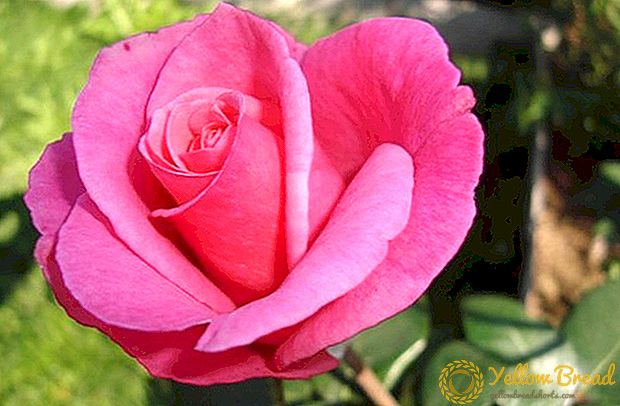
- Chiri. Crimson roses, flower diameter is 14 cm. One bud contains 60-80 petals. The height of the stem is 50-70 cm. The variety is quite popular among florists, it is often used to create author's bouquets and compositions.
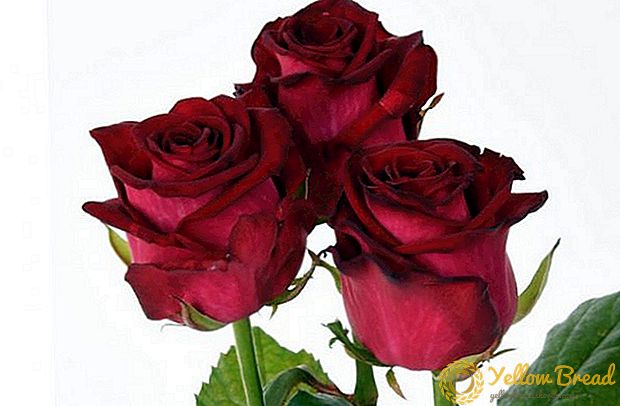
- Lovely lidia. The variety has a dark pink color, the diameter of the bud does not exceed 3 cm. There are 30-35 petals in one inflorescence. The height of the stem - 50-80 cm. This variety is represented by a bush rose, on the shoots of which there is a large number of inflorescences.
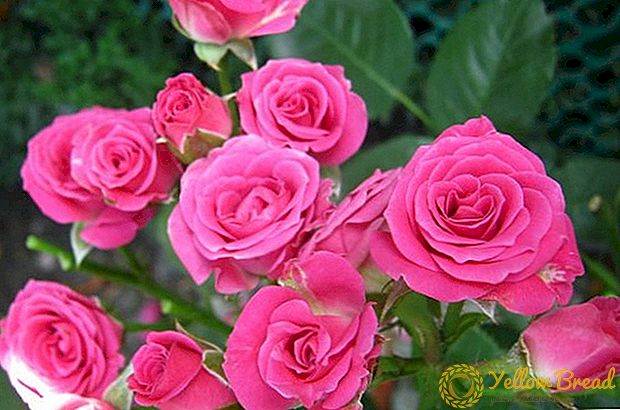
- Talea. The flowers are creamy pink in color, the diameter of the bud is up to 14 cm. The height of the shoot is 0.6-1 m, in one bud there are 50-60 petals. Actively used by florists to create bouquets.
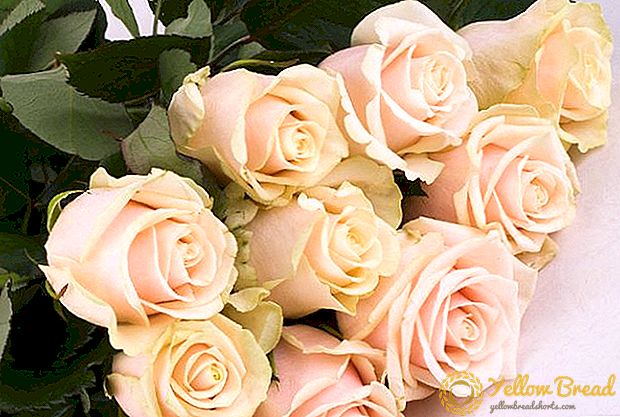
- Red Naomi. The buds have a classic shape, are colored in burgundy, the diameter is 14 cm. In one bud it can be 55-75 cm. The height of the shoot is 70-100 cm.The variety is distinguished by high-density buds that have velvet petals that long retain their shape.
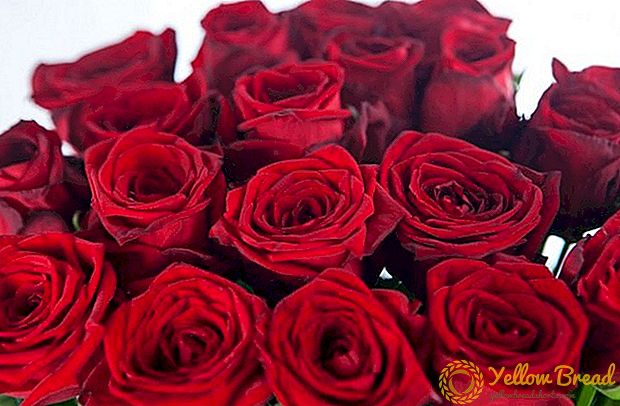
- Wow. The buds are painted in a bright coral color, composed of 30-40 petals. The height of the stem is 60-90 cm. The variety is attractive with an unusual color of petals.
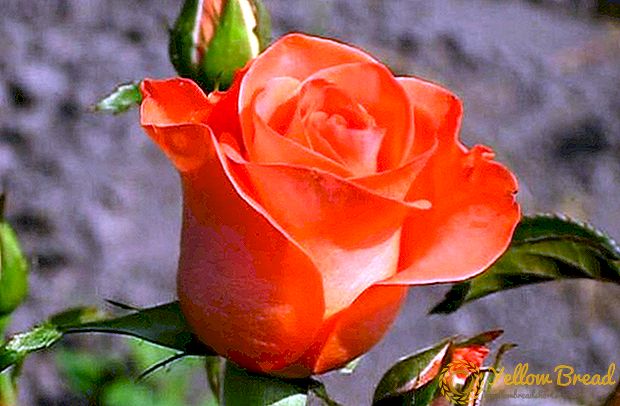
- Aqua. The buds have a delicate pink-lilac color, their diameter is 10 cm. In one inflorescence there are 35-40 petals. The height of the shoot is 60-80 cm. They are distinguished by the absence of thorns on the stem.
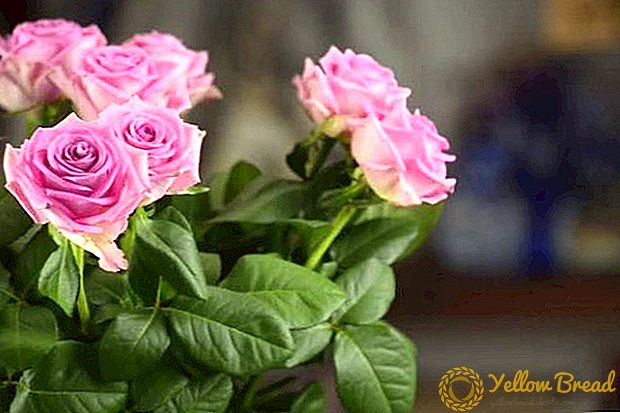
- Magadi. Buds of white color, the diameter of which is 60-100 cm. In one inflorescence there can be up to 60 petals. The variety has large and tall buds that are resistant to opening after cutting.
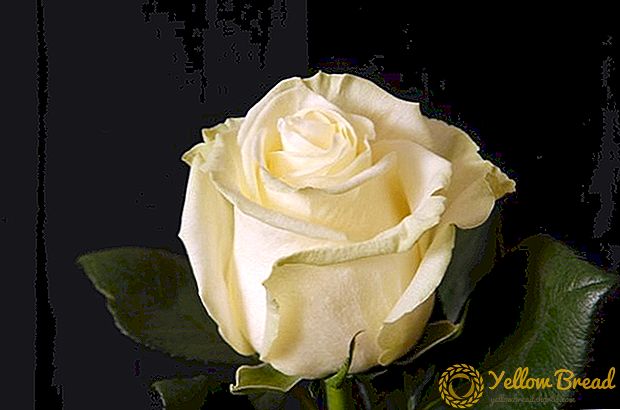
- Avalanche Peach. The bud has a cream color, when opened, its diameter is 12-14 cm. It has 40-50 petals. The height of the stem - 50-80 cm. The variety has good water resistance and the classical form of buds.
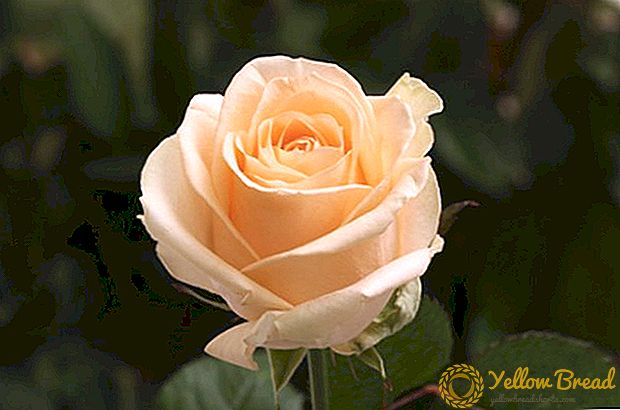
- Grace. The variety has a delicate pink color, with full disclosure of the buds, their diameter is not very big - 2-3 cm. Shoot height - 50-80 cm.
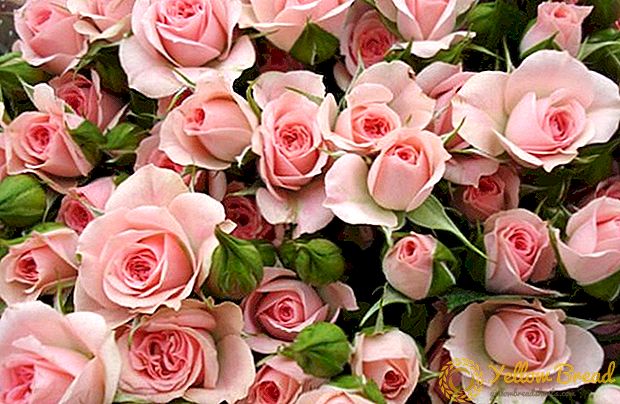
- Penny lane. A variety with a yellow color of buds, there is a slight greenish tint near the base.In one bud 40-50 petals. The height of the stem - 50-80 cm. Often used to create flower arrangements, looks good in combination with irises and roses Chiri.
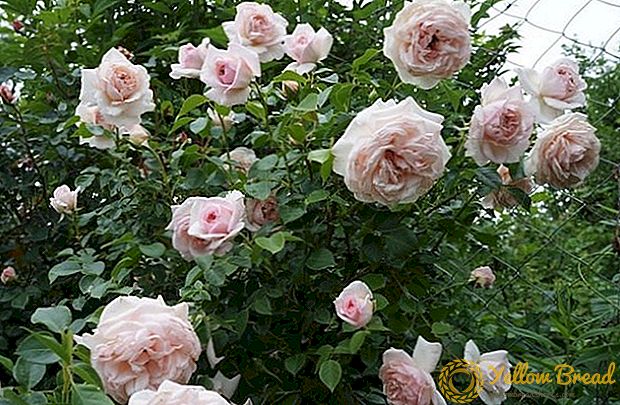
Growing conditions
If you decide to grow roses in your area, it is very important to consider some important points.
Site selection
The rose loves warmth and sunlight, so choose a well-lit area for landing. You can not plant a flower in the shade, but the sun should not illuminate the bush all day - it will be enough if sunlight receives a rose before dinner. It is also recommended to choose a windless place. 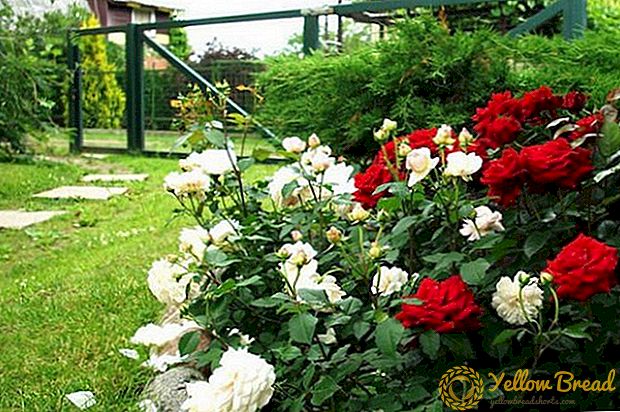
Better roses will grow if you plant them away from the trees - so the shrub will get more moisture and nutrients.
Soil requirements
In general, a rose can grow on any soil, but if you want to end up with beautiful and healthy flowers, it is recommended to plant compost or ash before planting.Also, after the bushes get stronger, it is recommended to make mineral fertilizers, but you should not use a large number of chemicals.
Planting and reproduction
There are several ways to grow a Dutch rose: saplings and cuttings. If you decide to use the first method, the landing should be done in the spring, after the ground warms up well and stable, warm weather is established. We recommend using the following recommendations:
- before planting it is necessary to prepare areas that should be placed in a well-lit, windless place;
- planting pits are being prepared, the distance between them is left depending on the variety;
- Before planting seedlings, it is necessary to remove damaged or dry shoots and roots from the site, as well as immerse the root system for 2-3 hours in a container with water.
You can also carry out reproduction, independently performing cuttings:
- cuttings are cut from the middle part of the stem.Their length should be 12-14 cm;
- 2-3 buds should be present on each of them;
- the upper cut is performed at a right angle, while it is necessary to retreat from the kidney 0.5 cm. The lower cut is performed at an acute angle;
- foliage is necessarily removed from the bottom of the cutting;
- foliage and thorns, located in the upper part, are shortened;
- The cuttings should be placed one day before planting in a growth-stimulating solution; when planting, it is worthwhile to deepen them only a few centimeters.
Planted cuttings need to be covered with a film and provide them with a temperature of 22-24 ° C. During the first two weeks, you must regularly spray the cuttings.
After rooting takes place, they are planted in open ground. Best of all, roses will grow in greenhouses, as they are not sufficiently adapted for wintering.
Peculiarities of care
Caring for Dutch roses is a complex and time-consuming process that consists in providing the plant with comfortable conditions. Consider what it is:
With the onset of the spring period, the main nitrogenous fertilizers are applied. Before the phase of active flowering (3 weeks before it begins), potash-phosphorus supplements should be carried out, which will positively affect the duration of this stage of development of flowers.
- Watering is carried out with warm water, which can be heated in the sun in the evening, at the root, so as not to wet the foliage, buds and flowers.
- The bushes are periodically treated using chemicals. Can be used and folk remedies.
- To protect the shrubs from powdery mildew, it is necessary to spray the extract of mullein and ash, previously dissolved in 10 liters of water.
- To prevent the appearance of spider mites, it is necessary to spray the plant during the growing season, every three weeks. To this end, drugs such as Fitoverm and Aktara are well suited.
- To protect plants from various diseases, it is worth using fungicides such as "Fundazol", "Skor".
- For the period of winter months you should definitely build a shelter for the bushes. Effective is the use of fir branches, which is laid on top of the film or other waterproof material.
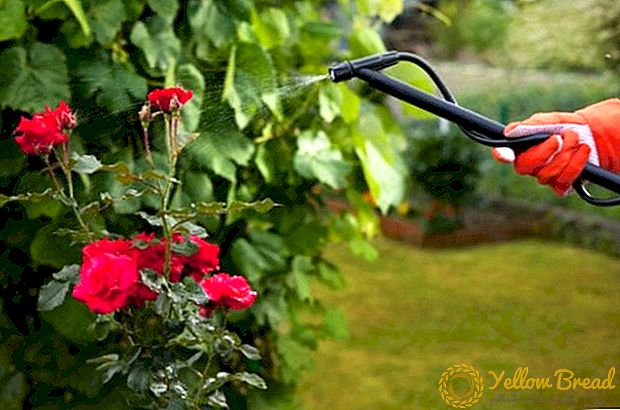 After reading our article, you learned what kinds of Dutch roses are, how to grow them on the site.Now each of you will be able to decorate the cottage with elegant, beautiful flowers.
After reading our article, you learned what kinds of Dutch roses are, how to grow them on the site.Now each of you will be able to decorate the cottage with elegant, beautiful flowers.

















